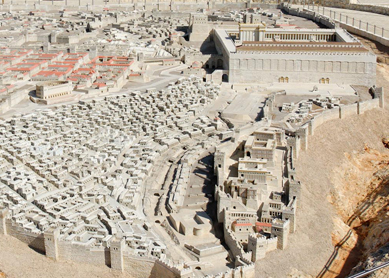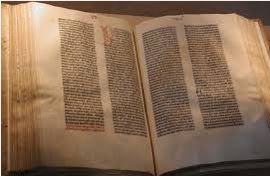One of the central insights of modern biblical scholarship about the Gospels is that they are not naïve or innocent accounts of events of Jesus’ life written at the time. They come from about a generation or two generations in some cases, after His death; and this is important for understanding many things, not least, their portrayal of the Jews and the fall of Jerusalem.
This is probably the most, the single most important aspect of understanding that they’re written later. First of all, how do we know they are written later? Well, there are many, many reasons, which I can’t go into here but I’ll give one example. In Mark 15:21, Mark tells the story of Simon of Cyrene carrying Jesus’ cross and he says that he knows about this story or implies that he knows about it through Simon’s sons, Alexander and Rufus, who are apparently members of his community because he expects his audience to know who they are; he says, “Alexander and Rufus were…are the sons of this man.” So, that’s very interesting and it already suggests that about a generation has gone by. These sons are adults in his community. There are many other reasons we think that the Gospels were written about 30 to 40 years after Jesus’ death.
But, in the case of the fall of Jerusalem, we can see, therefore, that when Mark has Jesus predict the fall of Jerusalem, he says, “Not one stone will be left standing on another” in Mark 13. Well, we can at least ask the question, “Is this really what Jesus predicted or has Mark, in the way of ancient historians, and biographers, added this into Jesus’ life?” Now, of course, one may ask, “Well, couldn’t Jesus have predicted it?” Yes, it’s possible that he did and we can’t rule that out; but when we come to Matthew and Luke, particularly, we have to question whether they are not now looking back on the fall of Jerusalem and reading it into Jesus’ life and sayings.
Two examples: on the Luke side, Luke predicts the destruction of Jerusalem in very vivid terms in chapter 19, talks about armies surrounding, besieging the city and the city falling because it didn’t recognize Christ and so you have the beginnings of what will become a very powerful Christian argument in the second, third, and fourth centuries, that Jerusalem’s destruction by the Romans was the punishment of the Judeans, the Jews, for rejecting Christ or maybe even crucifying Christ.
In Matthew there is the clearest example, I think, and it goes like this, Jesus apparently, himself, told a parable about a man who threw a banquet and he invited many guests and they couldn’t come and they all started begging off at the last minute, saying “no, I’m sorry, busy, I’ve got business to take care, I can’t come.” The host gets very upset; he sends out his slaves to call them in and when they come back and say “sorry, everybody’s busy” he says, “you know what, forget about them; go out and bring in all the poor and the lame and the maimed and the blind, let them come into my banquet; they’ll enjoy it at least; they will know that this is good and what I’ve prepared won’t have gone to waste.”
That story has a very simple moral, and we find it in Luke 14. We find it in the gospel of Thomas told just that way; and that is that complacent people are not really attuned to either social relationships or what God has prepared for them. They’re not ready for it, they’re pursuing their own wealth blindly and so on; and that seems a fairly clear moral.
In Matthew, Matt 22 takes the same story and converts it, sort of puts it on steroids and reinterprets it as an indictment of the Jews for rejecting Christ in the following way. He says, now it’s a king who gave a wedding banquet for his son and sent out his messengers to bring in the people for the meal; and they not only say, “I’m sorry I’m busy, I can’t come,” they kill the messengers, they beat them up and kill them which seems like, well overkill, when you’re invited to a banquet. What’s going on here? Then comes the real clincher, the king in his fury at his messengers being killed, sends his army and destroys their city. What’s that about? It seems very patently, a comment on the destruction of Jerusalem for rejecting the appeal of God and his Son, Christ, to the Jews.




